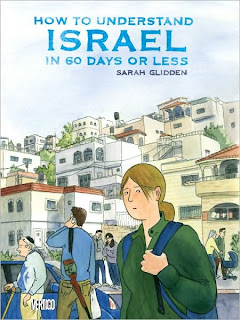 Memoirs and reportage don't need to be opposites, but they often are: a memoir privileges what the writer feels, while reportage always requires getting out and seeing something. A good memoirist, of course, must have some real experiences to draw on, and there are lousy reporters who stint on the shoe leather -- but, still, a memoir is primarily about interior experience, and reportage is about exteriors.
Memoirs and reportage don't need to be opposites, but they often are: a memoir privileges what the writer feels, while reportage always requires getting out and seeing something. A good memoirist, of course, must have some real experiences to draw on, and there are lousy reporters who stint on the shoe leather -- but, still, a memoir is primarily about interior experience, and reportage is about exteriors.But, then, what about a memoir designed from the beginning to be about a specific time? If the focus stays on interior life -- what the memoirist thought and felt and cared about -- rather than the details of the experience, does that move the work entirely over into memoir, or is it some hybrid form?
That's the question raised by Sarah Glidden's first book-length comic, How to Understand Israel in 60 Days or Less
Book-length manuscripts don't come together quickly, and even less so when they have to be drawn and watercolored (as How to Understand is). So the book comes more than three years after the experience it records -- even given the lead-times of publishing, Glidden must have been working on these two hundred pages for the better part of two years. But it doesn't feel labored or delayed; however Glidden created her script and worked it out, the book has the clarity and immediacy of a mirror.
The birthright tours are free for young Jewish people from around the world: paid for by private donations, run by various charter companies, but all overseen by the Israeli government, which mandates a few stops, at Masada and Vad Yashem. Glidden's tour is relatively serious and evenhanded, but there clearly are lots of these groups, of all types, chugging around Israel all the time -- Glidden's group comes across a group of standoffish Russians and a more outdoorsy American tour as well. (And, given the setup and the few required stops, Glidden is obviously right to expect propaganda; the entire point is to inculcate a sense of worldwide Israeli/Jewish identity and replenish the pool of goodwill for the Israeli state in the major countries of the world.) Glidden is vastly more "prepared" than the rest of the tour -- including her friend Melissa, whom Glidden has nearly dragged along, to have a sounding board and a sympathetic ear -- having spent the last few months reading exhaustively about the "situation."
How to Understand Israel recounts the events of that trip, but always from a perspective deep in Sarah Glidden's skull -- she fully intellectualized the experience both before and during the trip, so the book is as much about how she struggles with wanting to like Israel and the Israelis as it is about the events of the trip itself. Every event and aspect of the trip -- from the attitude of Gil, the guide, to the minutia of the itinerary, to the reactions of her fellow tourists, to her own feelings to all of the above and more -- is examined as she tries to see if her opinions are changing, or being changed.
It could be wearying, but it isn't: Sarah Glidden is entirely open and honest throughout, and that honesty is invigorating, even thrilling. If the unexamined life isn't worth living, Sarah Glidden's life is vastly more worth living than most of us. Her art quietly adds to the effect: she draws simple but clearly recognizable faces and works with mostly soft, bright colors (perhaps to show the penetrating desert/Mediterranean sun) to keep the reader tied to this new place that she's visiting. In the end, of course, Glidden understands Israel in the way any of us understand any place: as the pieces of it that we've seen and comprehended, inevitably biased and partial...but with the full knowledge of what she does understand and know, which is all anyone can ask for.
[1] The ex-editor in me itches to correct this to "...or Fewer."
Book-A-Day 2010: The Epic Index
No comments:
Post a Comment